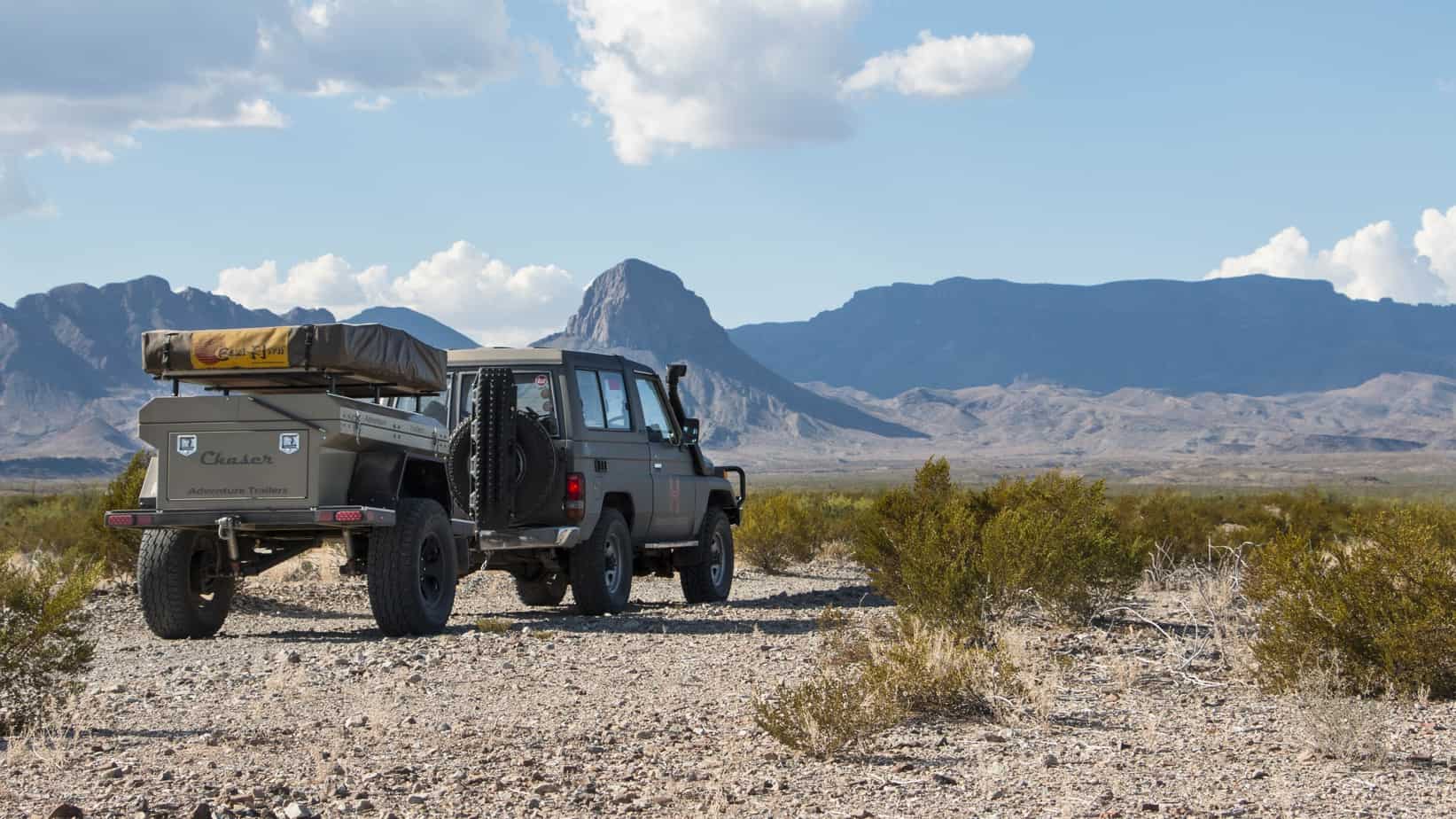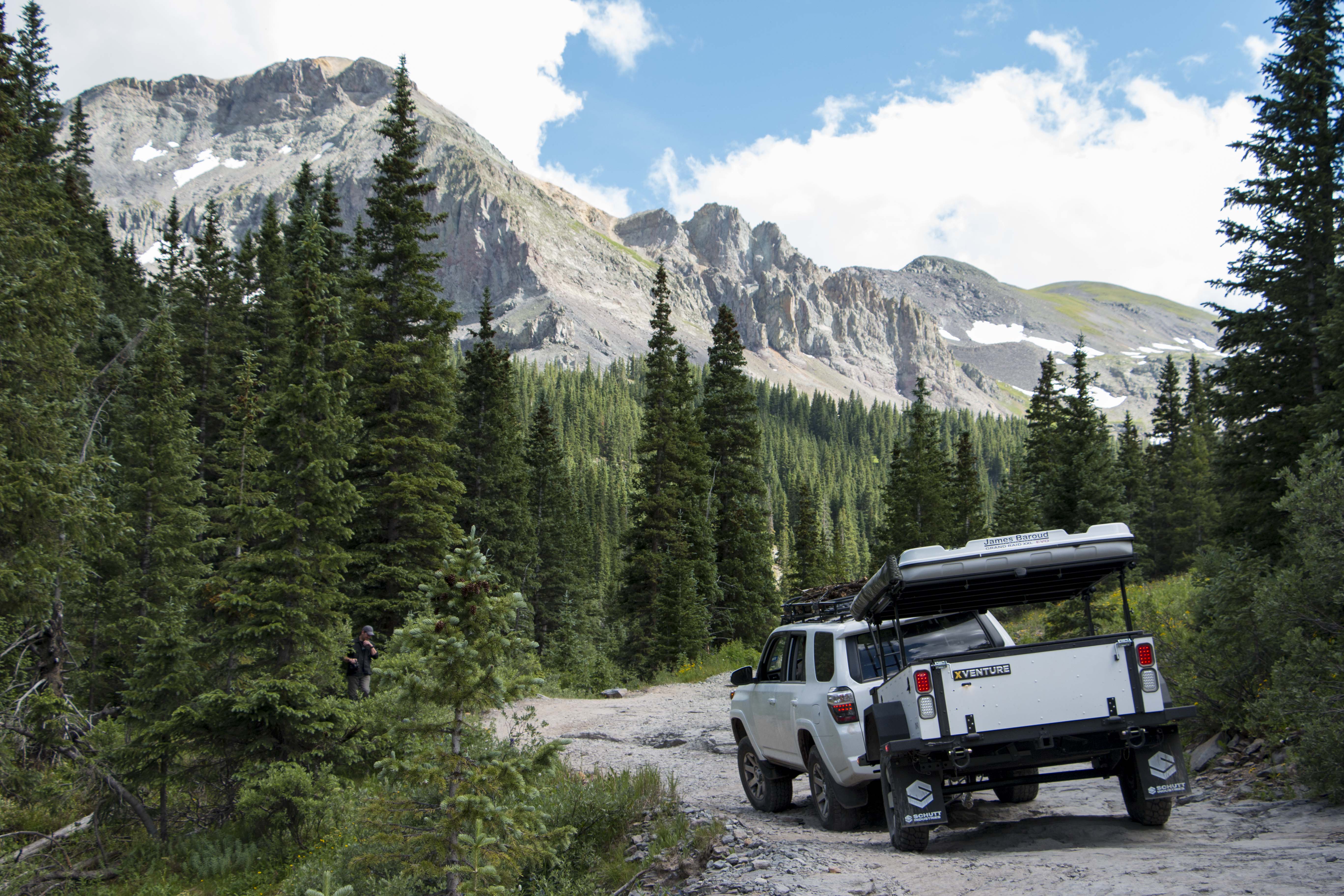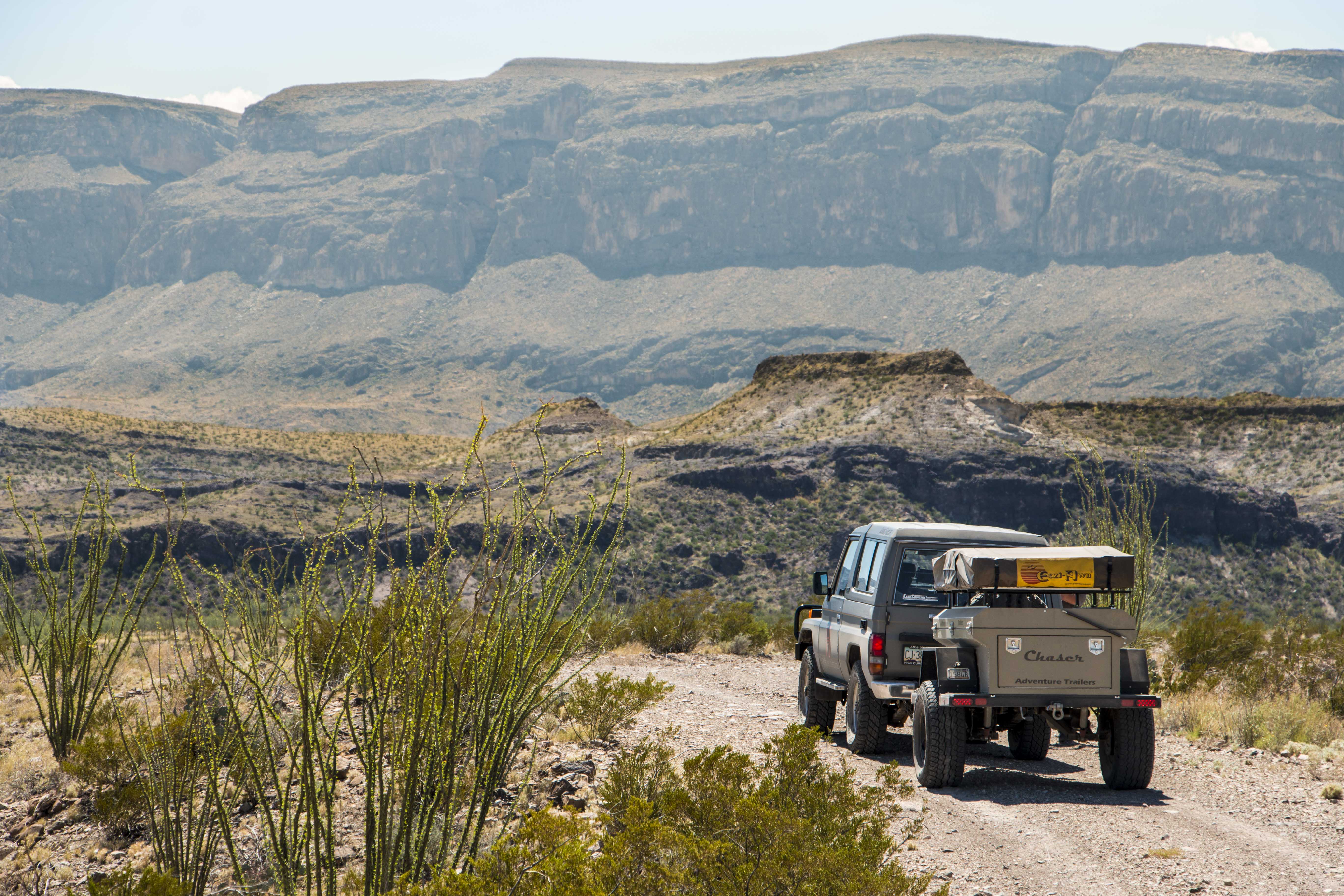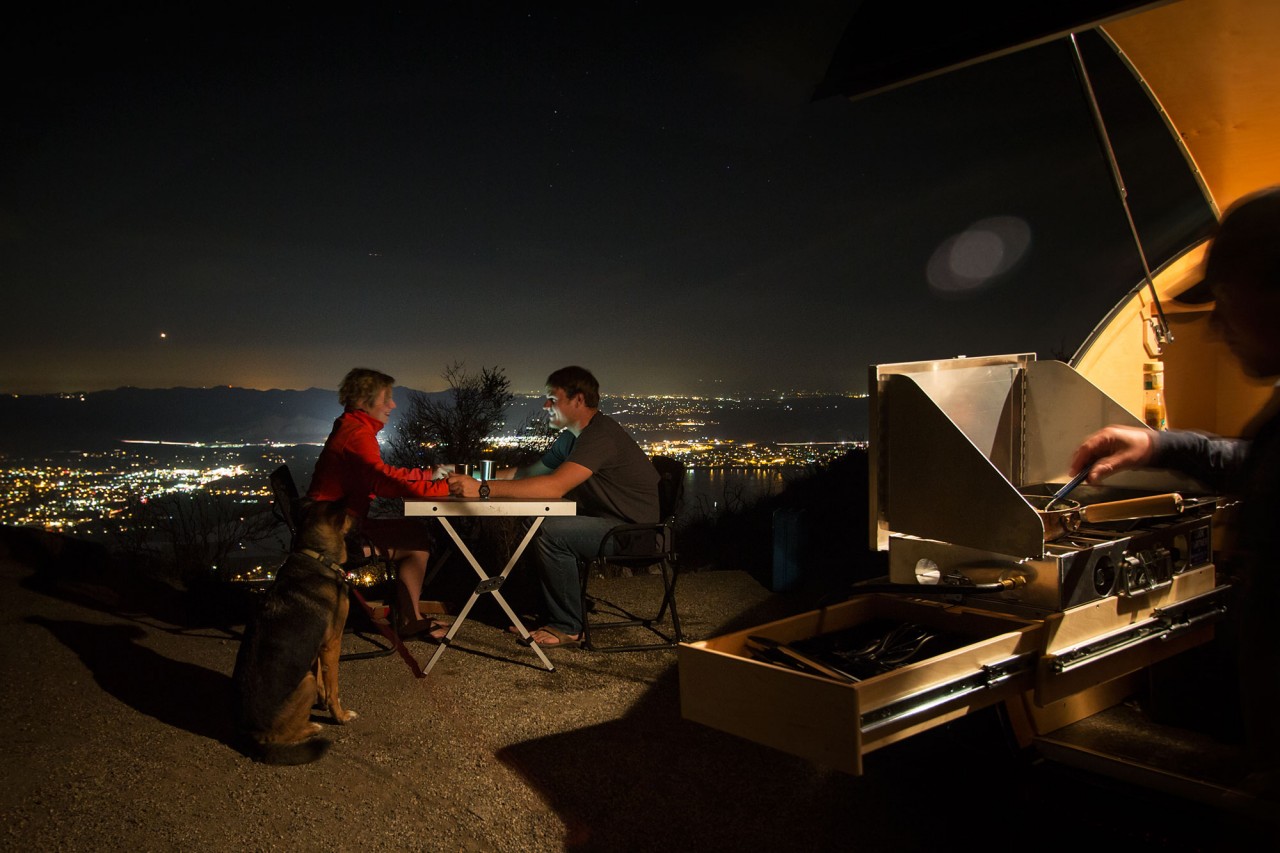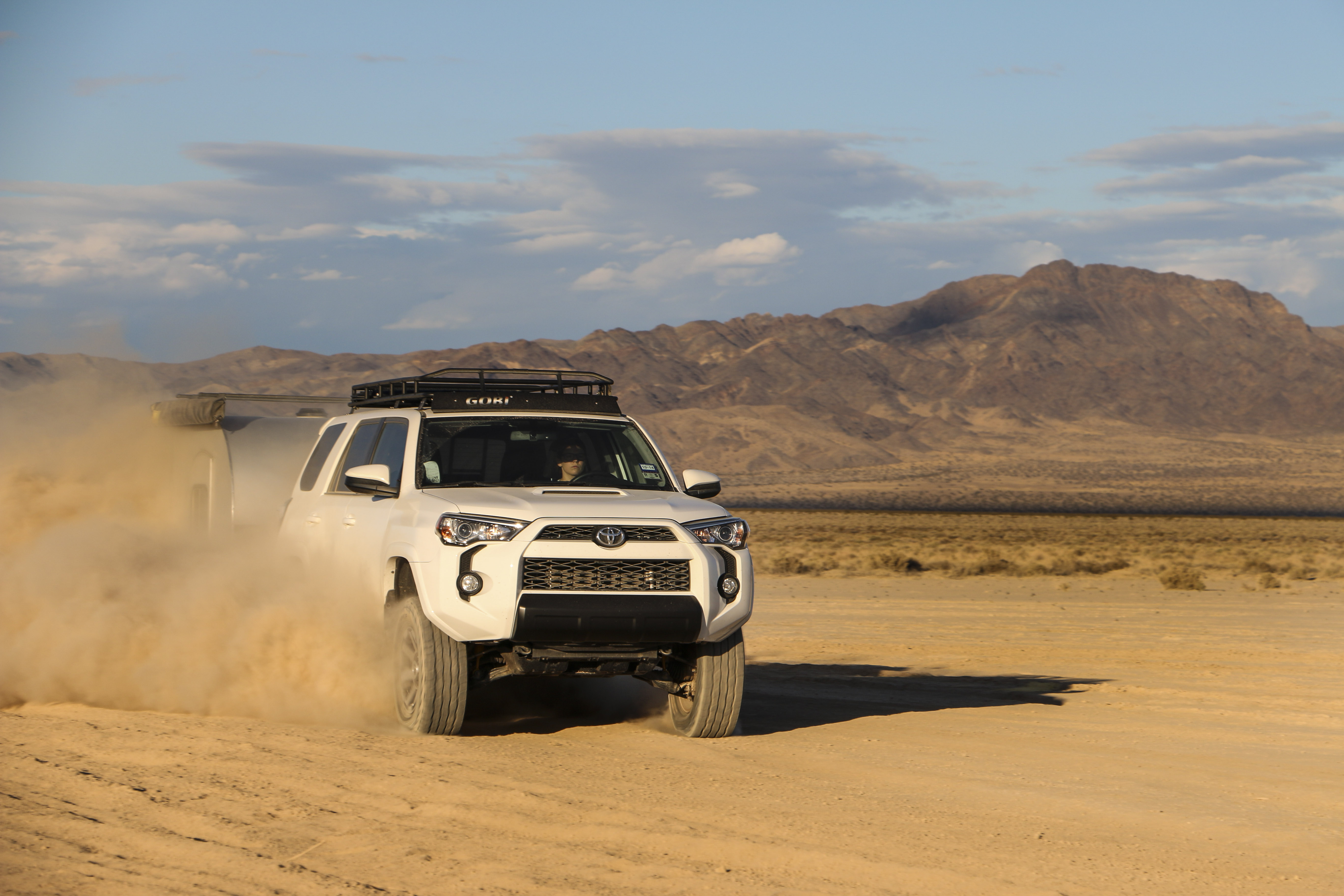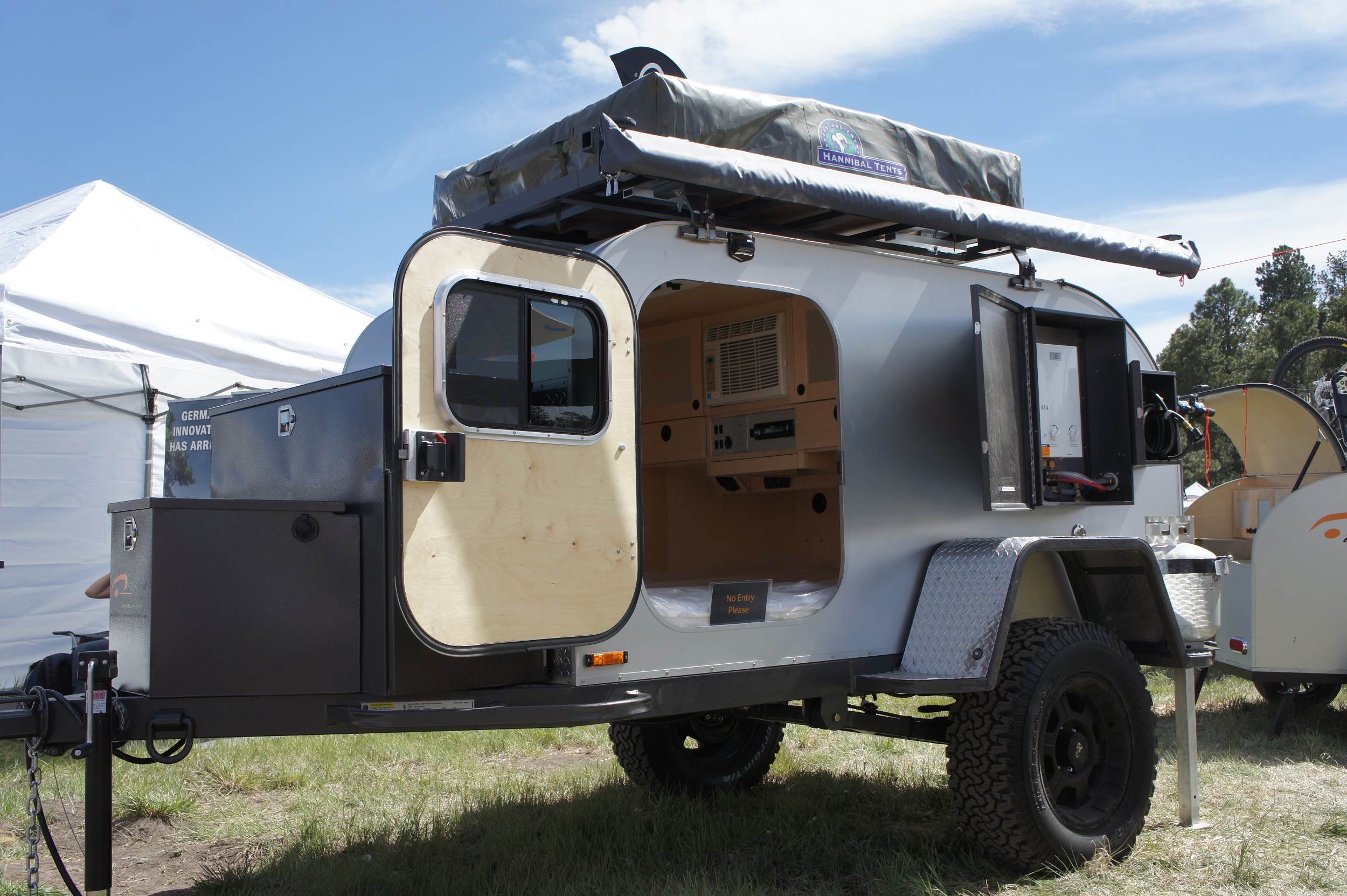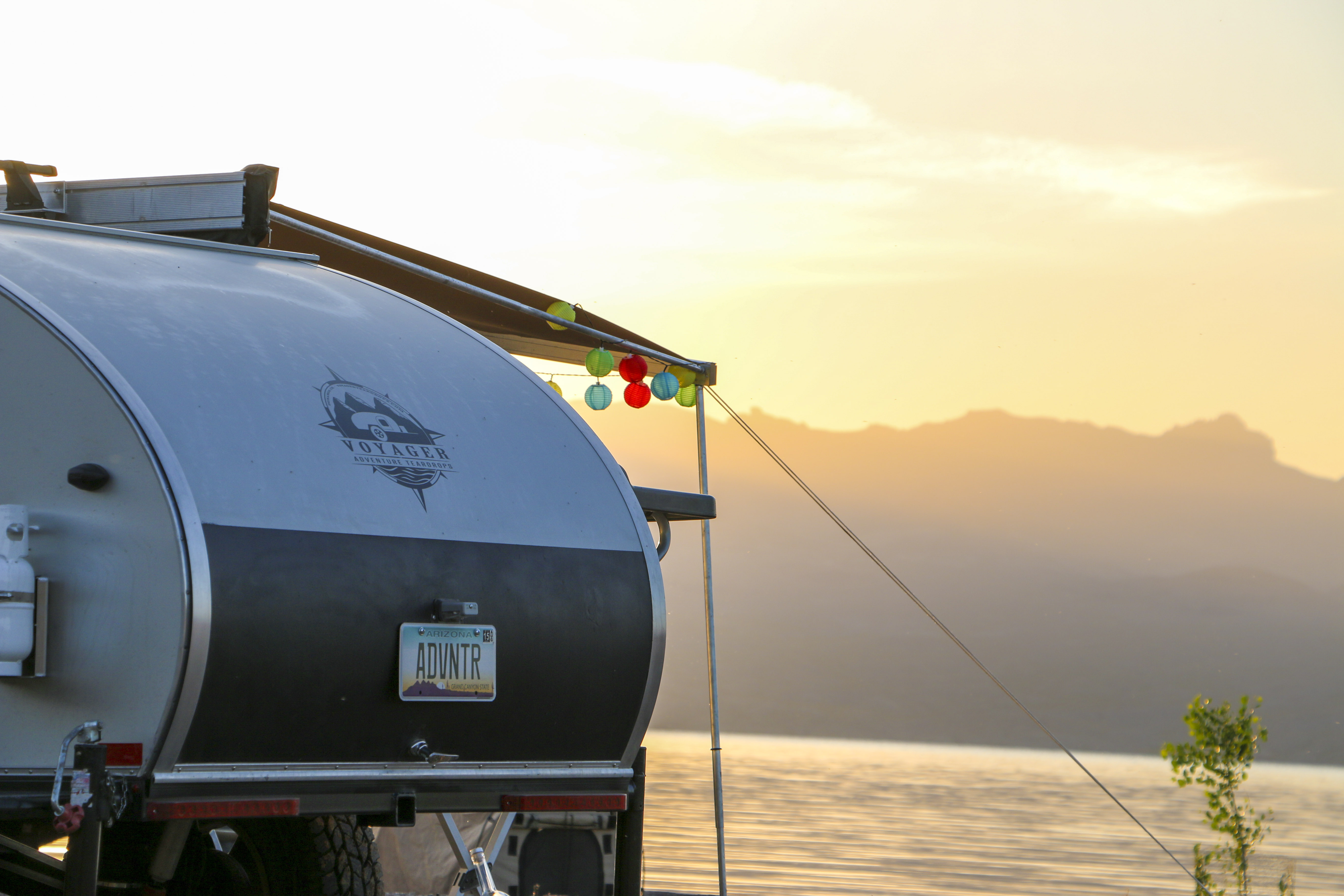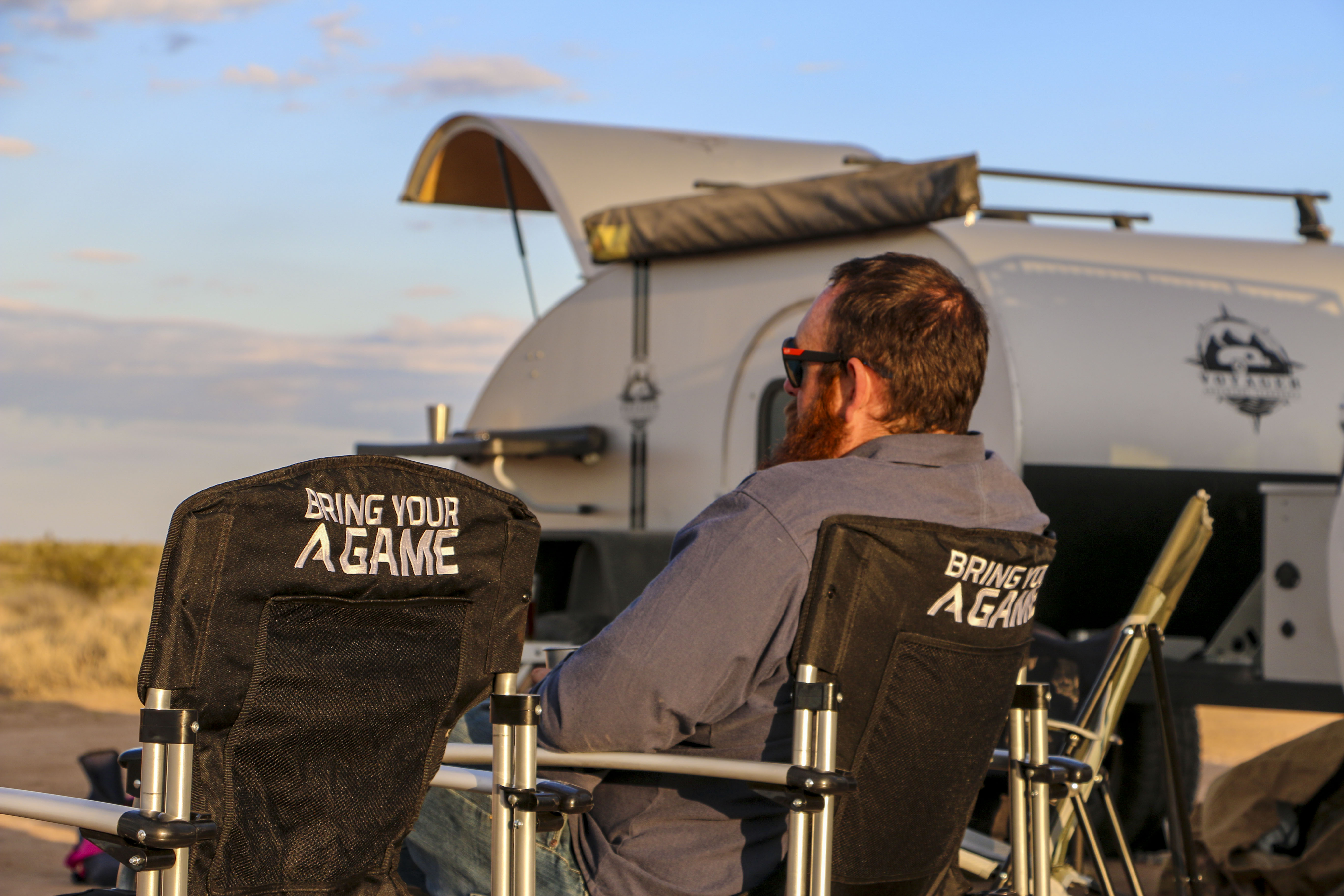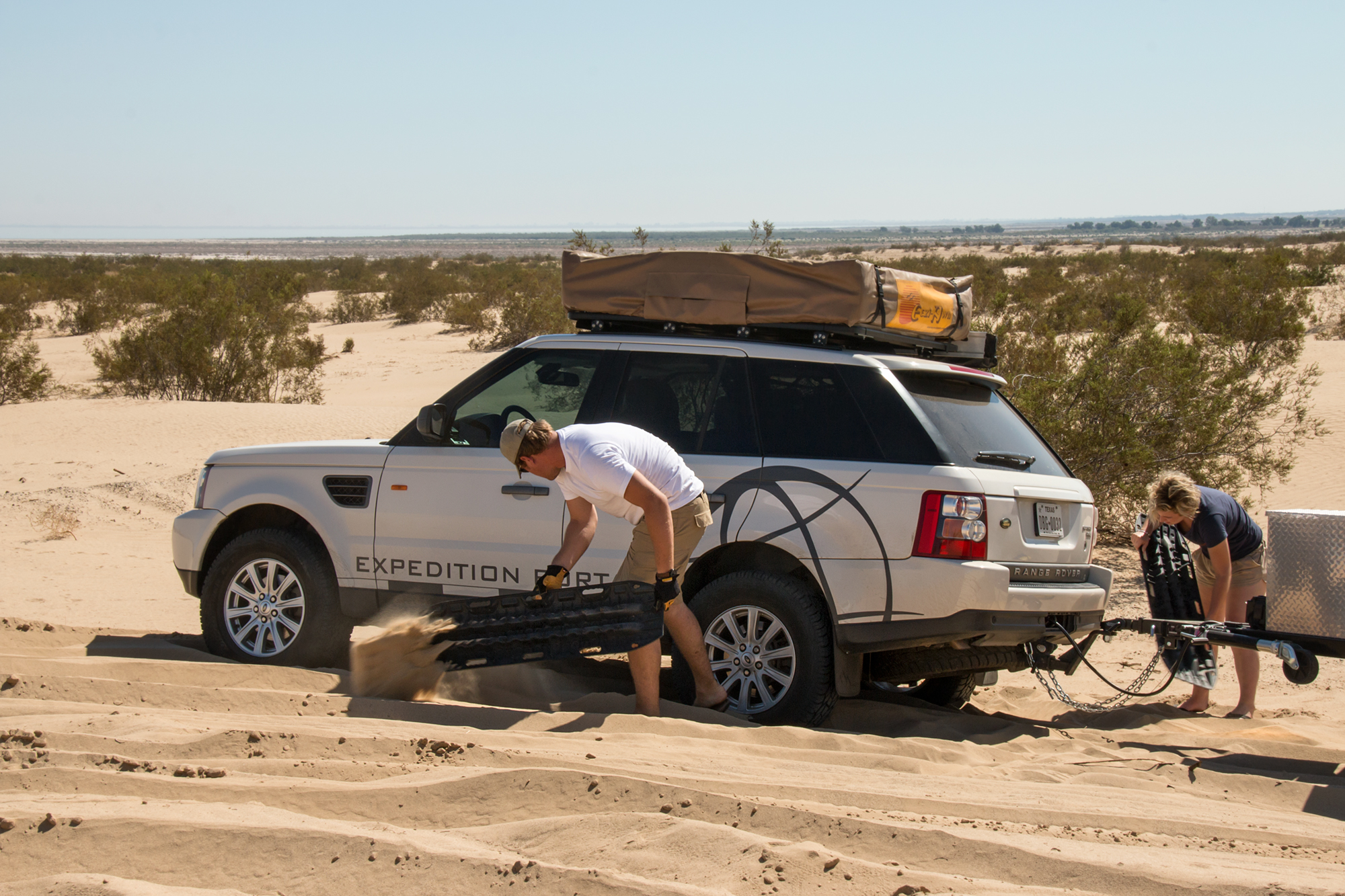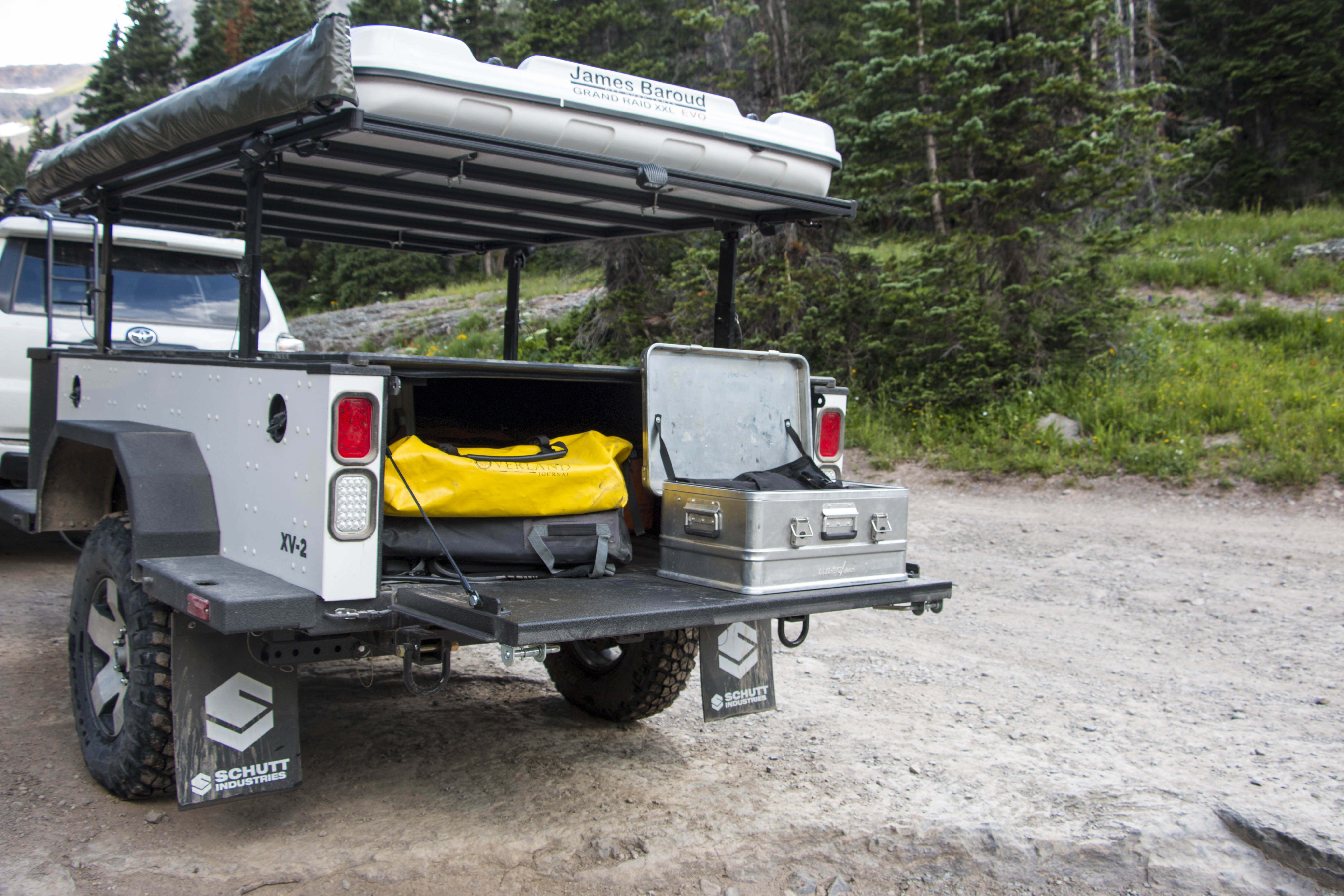The back country trailer market has exploded over the past decade in the United States. Where there was but one or two manufacturers before, there is now a large and ever growing group of companies selling off-road platforms of every shape and size. It seems that overlanders especially have been stricken with trailer fever, and many find themselves wanting one just because they’re “the thing to have”. The truth of the matter is that trailers can be the best camping investment you’ve ever made, or the worst, and it all hinges on your personal taste.
More specifically, it rests on your style of travel. The type of places you like to visit, how many people come along, what equipment you want to bring, and how fast you like to drive can all play a critical role in determining if trailer will enhance or inhibit your experience. To give prospective owners a little food for thought, we compiled what we feel are the top positive and negative factors of using a trailer. Hopefully they can help make your decision to purchase, or not to purchase, just a little bit easier.
Why you should make a trailer your new home on the road
1. They add storage
If you drive a Jeep TJ and want to take your wife on a camping trip, you’re going to have very limited space for gear and equipment. Add two kids or a dog into the mix and there just isn’t enough room. A trailer can help solve this problem by providing additional storage capacity when you need it, and staying at home when you don’t.
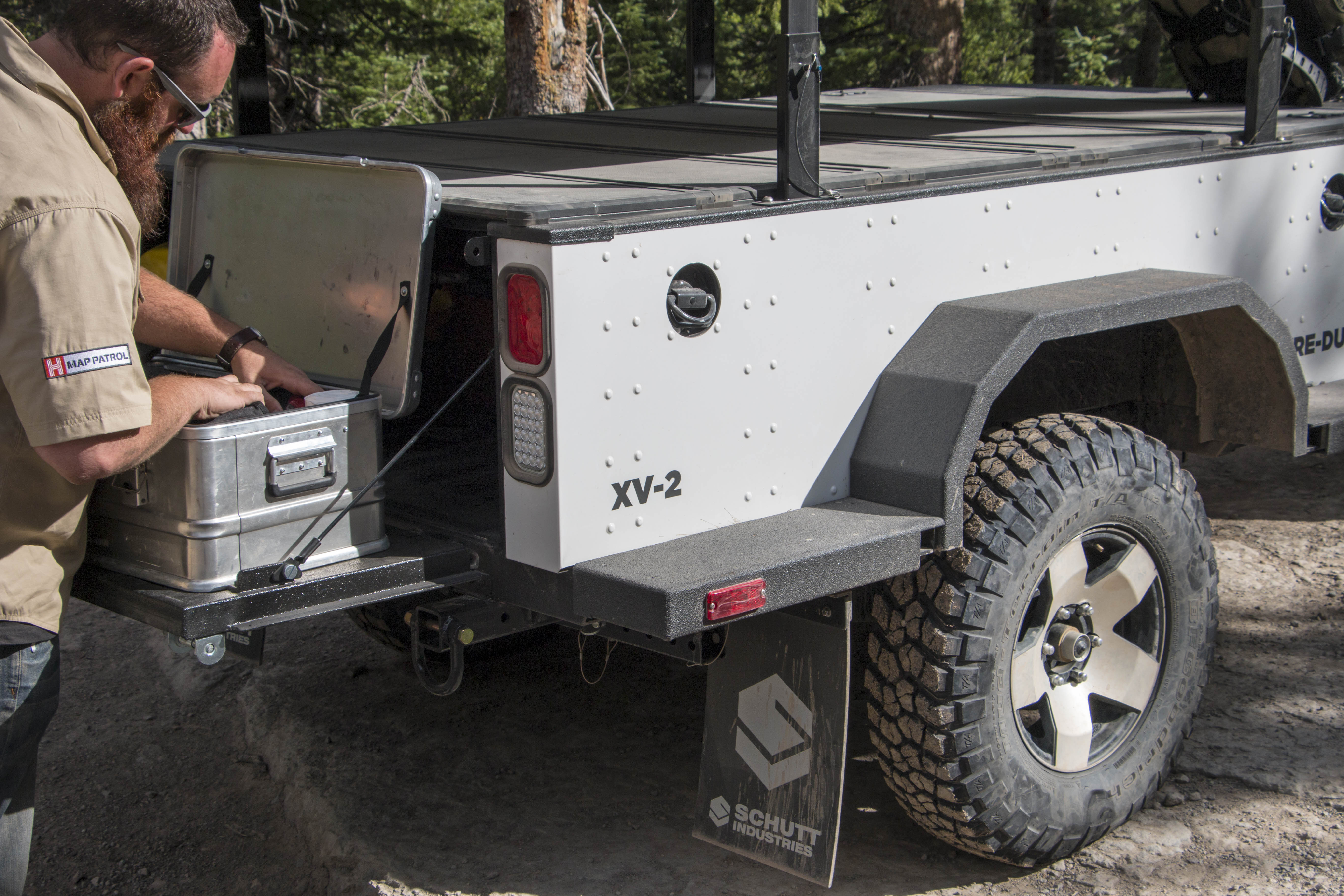
Cargo style trailers are the optimum choice for this sort of task, as their sturdy tubs can withstand abuse from any sort of payload. They’re perfect for hauling storage boxes, tools, duffel bags, fire wood, coolers, tents, or even landscaping and construction supplies on weekend projects. So go ahead, bring that bigger and more comfortable chair, toss in your favorite hammock, load up those fishing poles, and take the time to enjoy the destination when you reach it. Sometimes it’s the little things that can turn a good trip into a great one.
2. They can increase comfort and living space
Need a place to take shelter from a storm, change your clothes, or play games at night? Maybe you want a little more space for the kids… or away from the kids. When modifying your vehicle just doesn’t get you there, a trailer can provide an amount of space and comfort that would otherwise be impossible.

Models like our So-Cal Teardrop include a large thick mattress, hard walls, a ready to go kitchen, and can even include a hot shower, propane heater, and a built in stereo. A tent trailer like the Kakadu provides a cushy bed, plenty of storage, and up to two entire rooms in which to move around or just relax in peace. Even roof top tents designed for trailers, like Eezi-Awn’s Globetrotter, come with a thicker mattress and larger annex than standard units. It’s surprising how much of a difference a little extra space and convenience makes on long trips, especially when the weather turns sour.
3. They remove weight from the vehicle
Overlanders are known for their rather extravagant glamping setups. We love to bring our uber comfortable chairs, our fancy cookware, and our stock of craft beer, but all of that comes at a price, weight. I can’t begin to count the “expedition” vehicles I’ve seen with packed roof racks, sagging suspensions, and a far bigger payload than their vehicles are rated for. It’s not only bad for performance and reliability, but it is dangerous for the occupants and those around them.
If you want to solve the issue but don’t feel like loosing the gear, a trailer can carry the burden. It removes the weight from the vehicle and replaces it with a much lighter tongue weight, usually 250lbs or less. While you’re still lugging it around behind you, the stress is off the vehicle’s body, suspension, and axles, allowing it to function closer to stock form.
4. They reduce the need for modifications
A carefully prepared and modified vehicle is a thing of beauty, but sometimes installing accessories in your trailer can be a better option. For example, if your vehicle is relatively new, many upgrades can lead to warranty nightmares. Besides the usual loss of coverage on any related parts, an overzealous dealer will occasionally cancel the entire contract to avoid a costly repair bill, sticking you with the tab.
Additionally, driving a vehicle around every day with water systems, air compressors, refrigerators, and water tanks can be tiresome. It limits the trucks handling, acceleration, braking, and fuel economy, as well as taking up a good deal of room.
By installing your accessories and equipment in the trailer, you can keep your vehicle at top performance every day while maintaining all your factory warranties. Plus, when it finally comes time to sell your truck you won’t have to start from square one on a new vehicle, because all your gear is in the trailer!
5. You can spend less time packing and more time camping
Getting out on regular adventures can be pretty tough as a weekend warrior. Each time you hit the road you need to assemble your gear, pack the vehicle, take the trip, and then unload it all again before heading into work the next week. Sure, you could leave you truck stocked all the time, but if you have a family or need your car to be presentable at work, that probably won’t fly. A trailer however, lets you keep everything you need for a trip loaded and ready to go at a moments notice. Simply leave work, hook it up, and go. This also makes them perfect for bug out situations like natural disasters.
6. They make a great basecamp
If you’re the kind of person who likes to explore an area for a few days at a time, a trailer can make life much easier by serving as a base camp. There’s no need to pack up that roof tent, disassemble your camp gear, and shove it all in the vehicle to leave. Instead, just unhook the trailer and you are on your way to adventure! The best part is that when you return from a long day hiking or driving, your entire camp will be setup and waiting.
7. They slow you down
You’re probably thinking that I put this on the wrong list, but nope it is meant to be here. One of the key pieces to overlanding is experiencing what’s around you. It is taking in the sights, the sounds, the smells, and understanding the place in which you’re traveling. I find that all too often people miss this opportunity completely. They are so focused on the drive and making it to their destination that the world just passes by their windows.
When you’re towing a trailer though, you are forced to slow down and take your time. It might seem frustrating at first, but suddenly you begin to notice the cool and interesting things all around you. You stop more often, take more pictures, and enjoy things you may never have seen while going faster. You’ll end up meeting all sorts of interesting people who love to ask about your “crazy” trailer, where you’ve been, and where you’re going. Some of the things we’ve seen are cute, like the surprised chipmunk on the left, and some are astounding, like the small home named Luna’s Jacal on the right. Luna built this house by hand in 1890, and then raised his family there comfortably for 57 years until 1947 when he passed away. What is so amazing about that? He lived and worked this property until the age of 109!
Those of you who want a trailer are probably feeling pretty good about them by now, but don’t make your mind up yet! Sometimes your magical camping contraption can be a royal pain in the butt, which is why you need to seriously consider the negatives below.
Why you should ditch the idea of a trailer
1. They add weight
Okay this should be obvious but here it is, trailers add weight! Precisely how much varies between manufacturers and models but generally a cargo trailer will weigh between 750 and 1500 pounds, and hard walled trailers will range from 1500 up to 4000 pounds or more. Towing that behind you will decrease your fuel economy, and therefore your range, limiting the places you can go, and increasing your cost of travel. It accelerates wear on drive line components, and usually requires an upgraded rear spring to properly handle the weight. Climbs require a higher RPM to achieve the same forward progress, and lugging two un-powered wheels through mud, sand, and snow doesn’t make things any easier. In fact with the added drag, it’s not uncommon to be sucked down when traversing soft surfaces. Airing down and carrying a proper self recovery kit should be considered mandatory.
2. They can be difficult to maneuver
For the most part, trailers are not nearly as difficult to tow as people believe they are. A little practice can make off-road towing easy, and a little more can make it second nature, but there are still limitations and difficulties that a solo vehicle would not experience. The biggest problem is that trailers don’t follow your track perfectly. They turn wide, can slide when off camber, and drift on anything soft or loose, creating some serious issues if you aren’t prepared to compensate.
On narrow trails you have to worry about cutting a corner and running the trailer into a rock, a problem which is amplified if you choose a model with a wider wheelbase than your vehicle. Opting for a smaller one helps, but requires you to pay closer attention to rocks and obstacles passing underneath the truck. An ill-placed wheel in a rut or on a high rock can quickly tip a narrow trailer on its side.
Everyone’s big fear though, is backing up. Once again, it’s not as hard as you’d think. Patience, situational awareness, and if need be a spotter can get you through just about anything, but reversing down a narrow shelf road sucks no matter how much experience you have.

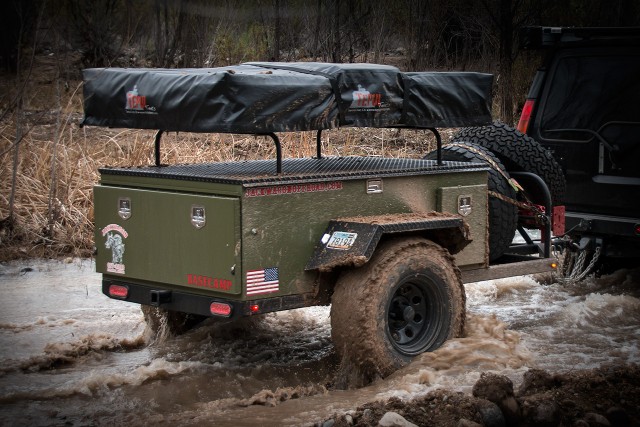
3. Visiting cities is tough
If you often find yourself on adventures of the suburban persuasion, trailers require a little more forethought than a standard overland vehicle. Driving down narrow car lined streets can be difficult, and an accidental turn towards a dead end can be a massive pain. Parking is even harder than driving though, and requires a touch of luck along with no small degree of skill.
Your best shot is usually to parallel park along the road, but finding two spots is rare. Even if you do manage it, you have to pay for both meters at the same time which is less than ideal. Most of the time you’ll be forced to hunt for a space far from the main street, and then walk to wherever you want to go.
4. They can be expensive
The biggest kicker with purchasing a trailer though, is that they can cost an enormous amount of money which could have otherwise been spent on travel. In many cases it is enough to have funded a trip half-way across the globe! You don’t have to spend a fortune though, which is why this line item comes with a caveat. You can have an off-road trailer for very little IF you’re willing to put in the work. It usually requires a long search to find a good used trailer, and then plenty of man hours to make it what you want. If this isn’t your cup of tea, or you don’t have time to wait, trailers are pricey. The baseline usually ranges from $6,000 to $10,000 like the options seen in our trailers under $10K article, but a fully kitted unit will run from $16,000 to $70,000 (Kimberly Karavans etc). That’s a lot of cheddar no matter how you slice it.
5. They encourage you to buy more stuff
Have you ever noticed that when you have extra room in your garage, it always seems to fill up with something? Your once empty space seems to disappear behind a table here and a box there until eventually you realize you’re hoarding junk. The same thing can happen with a trailer. If you have enough gear to fill three quarters of the bed, you’ll start thinking about what could fit in that last quarter. You’ll be in your driveway staring at the partially empty space when suddenly you’ll think “you know what would fit great in that spot, an (insert random piece of crap you don’t need here) “. I unfortunately speak from experience.
6. They slow you down
Aha, I tricked you, this is on both lists! As wonderful as slowing down is for the wandering soul, it really sucks when you need to get somewhere. You’ll have to deal with the maneuvering difficulties mentioned above, restricted speed limits in some states, and then there’s the amount of time you’ll burn looking for a decent place to park. The biggest time suck though, is the slow pace required to avoid damage while on dirt. Because trailers lack the opposing leverage of a third and fourth wheel, impacts from rocks, ruts, and other obstacles tend to be amplified. A bump you might hardly feel in the truck can simply send one wheel of the trailer air born, resulting in heavy swaying, bouncing, and even a roll over. If you want to keep your trailer in once piece, it takes careful measured driving and a sacrifice in speed. Looks like you’ll be taking up the rear of the group on the next trip.
This list is far from complete, and the thirteen factors above just scrape surface of possible ways a trailer could influence your trip. Each model comes with its own set of strengths and weaknesses, and each driver comes with their own set of expectations and requirements. We have found trailers to be fantastic solutions on many back country trips, but many people may find them to be a hindrance. At the end of the day the only person who can decide if a trailer is right for you is well, you! We just hope we’ve helped to make you decision an informed one.


